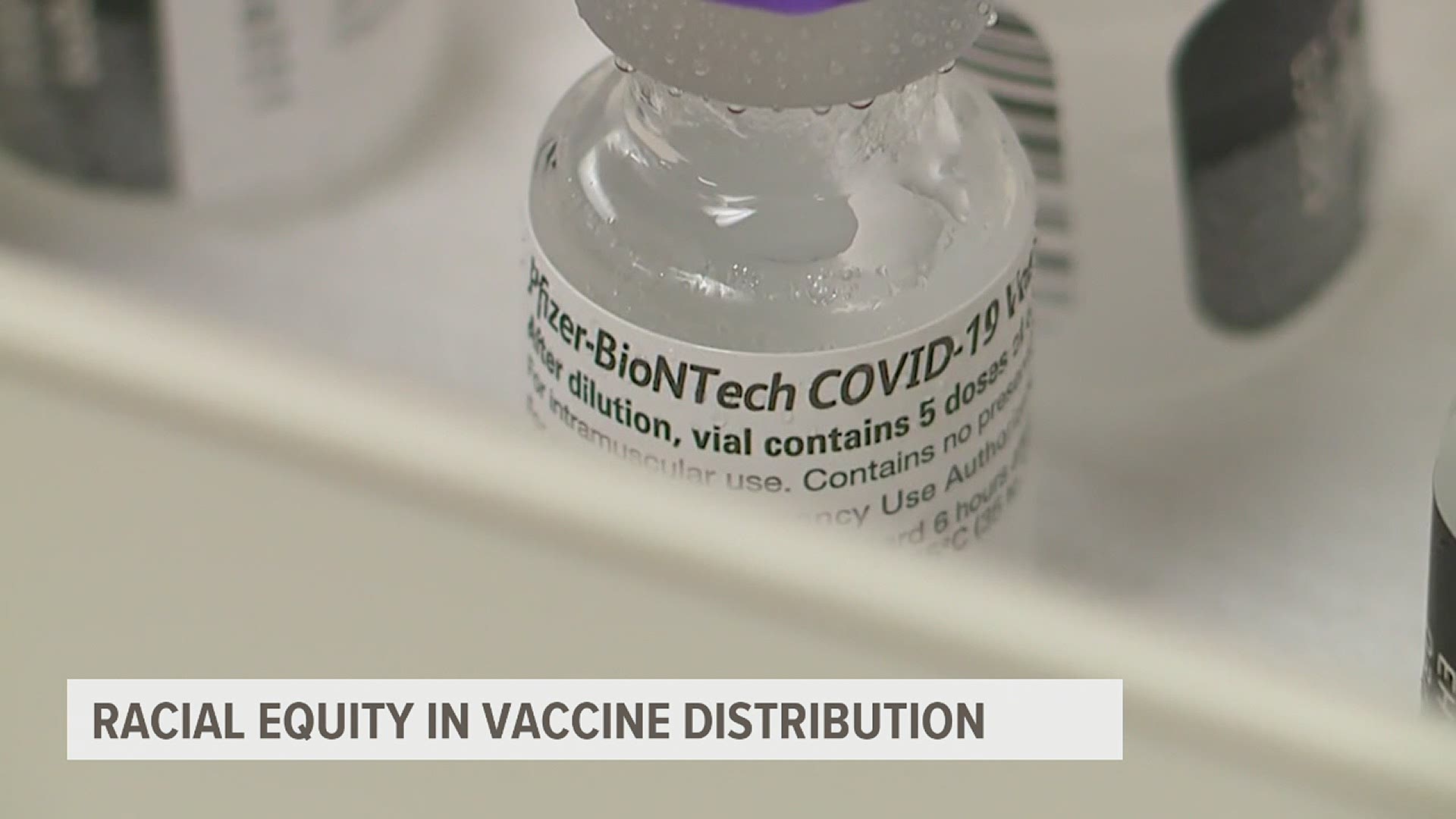YORK, Pa. — On Jan. 14, Dr. Anita Chandra, of RAND Social and Economic Well-Being, a nonprofit research organization that seeks to improve the health, social, and economic well-being of populations and communities throughout the world, spoke with FOX43's Jackie De Tore about the role that racism plays in public health, and thus the COVID-19 vaccine roll out.
Chandra began by speaking a bit about how race and public health are related.
"We know that issues of race and racism play a significant role in health outcomes in our country," she said. "Over the past year, we're seeing the disproportionate impact of the pandemic particularly on communities of color."
She then went on to describe how society can begin to address concern about equitable distribution of the COVID-19 vaccine as well as vaccine hesitancy related to long-standing medical mistrust within minority communities.
"We have to think about what's in our systems and our policies that have for so long disadvantaged some groups over others in terms of their access to health services and their overall health," she said.
Chandra also said that there are things that the incoming Biden administration can do to help address these concerns. She said that communication and education about the vaccine is vital, especially in communities where there have been historical issues of mistrust between them and those in the healthcare sector.
She then took some time to discuss a recent survey that her organization conducted about COVID-19 disparities, entitled "COVID-19 and the Experiences of Populations at Greater Risk."
The survey sought to "understand how health views and values have been affected by the experience of the pandemic, with particular focus on populations deemed vulnerable or underserved, including people of color and those from low- to moderate-income backgrounds" and interviewed Americans specifically.
The organization also wanted to gain understanding on whether the past year of dealing with COVID-19 has made people think about systemic disparities, issues of race and civil unrest, and whether or not that increased Americans awareness of race and racism in influencing public health.
The survey found that fewer than 50% of Americans in the survey recognized the role that systemic racism plays in influencing health, which Chandra said was unfortunate.
The survey did find, however, that about 70% of respondents said that they saw COVID-19 as an opportunity for positive change, whether that's expanding access to health services, or addressing racial, social, and economic inequities.
The survey also found that people are reporting collaboration and civic engagement in their own communities as a result of the pandemic.
"While there might be low levels of trust in the federal government, there's a lot of positive action happening at the community level," she said.

